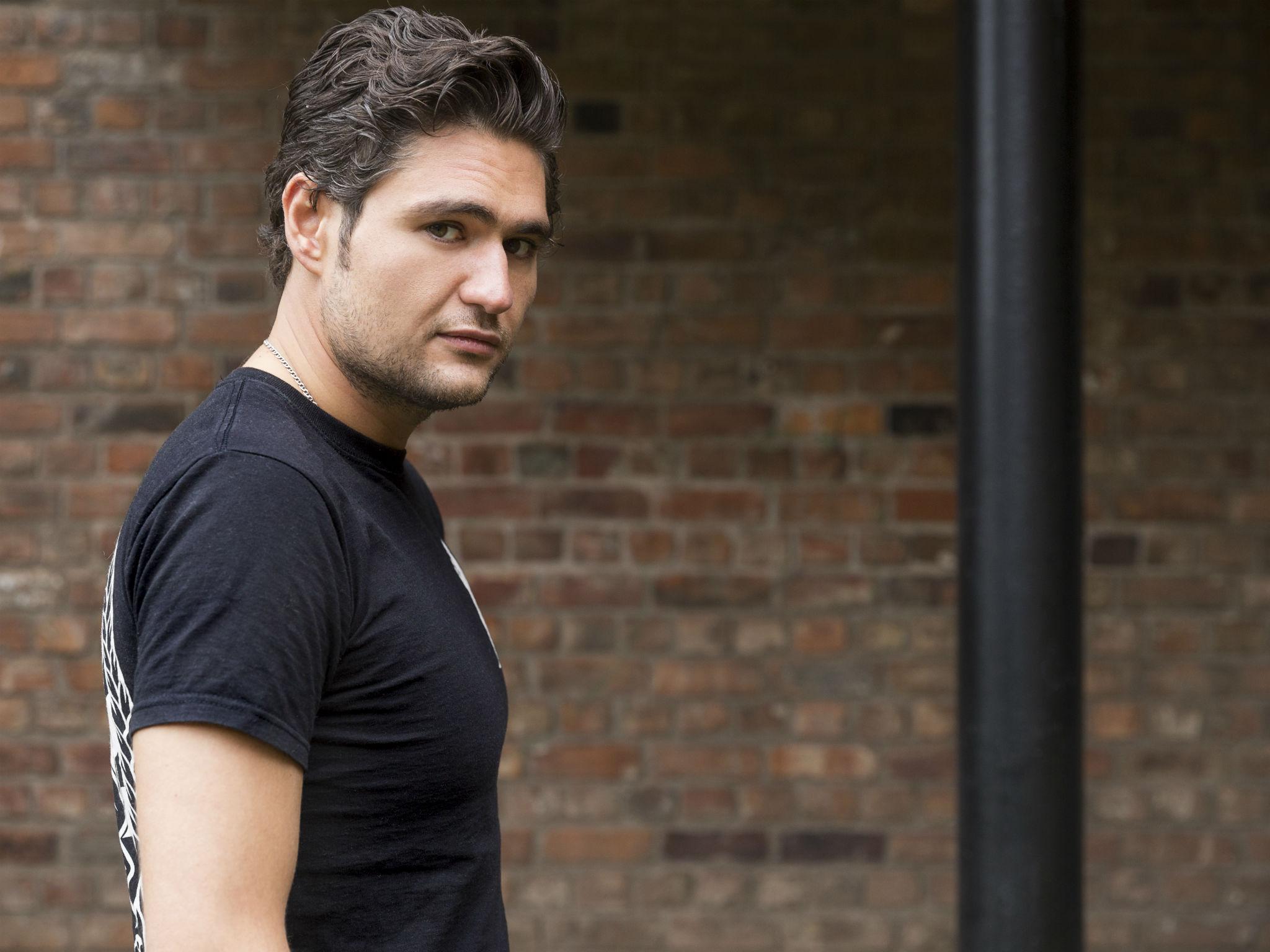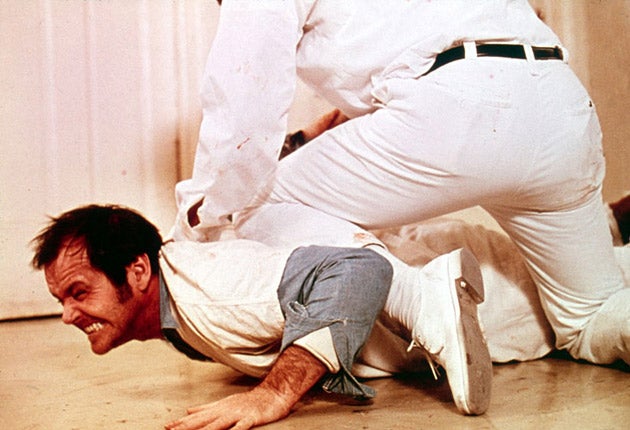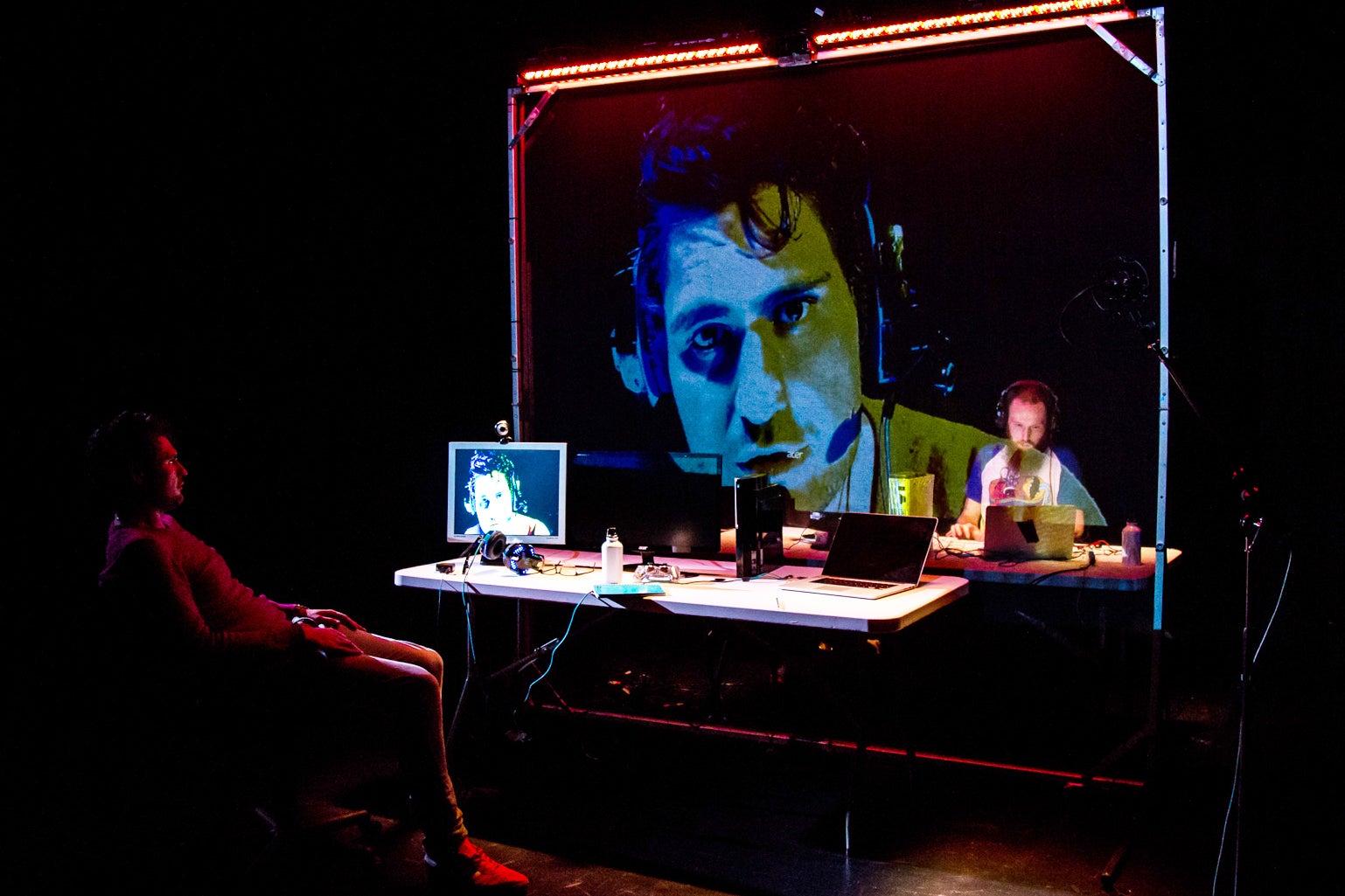A rebel with a cause: Javaad Alipoor on putting One Flew Over the Cuckoo's Nest on stage
The director is reassessing this modern classic, and the way it explores masculinity, authority and rebellion

“One Flew Over the Cuckoo’s Nest tends to be remembered by people as a cool story about rebellion,” says theatre director Javaad Alipoor, “but I’m interested in looking at the seductive nature of a certain kind of masculine rebellion that makes us complicit in particular kinds of male behaviour.”
Unlike Randle Patrick McMurphy, Cuckoo’s anarchic troublemaker who wreaks havoc in a mental asylum, theatre maker Alipoor is a rebel with a cause. Born and raised in Bradford, where his Iranian father – who was a fierce critic of the Shah – took refuge prior to the 1979 revolution, Alipoor wants to change theatre, and he wants us to look at familiar stories in new ways and find new ways to tell them.
His last show, The Believers are but Brothers – an exploration of online alt-right and Jihadi extremism – encouraged audiences to leave their phones on during the performance and delivered part of the show via WhatsApp.
There will be no mobile phones in his period revival of Cuckoo which opens at the Sheffield Crucible at the end of the week. Neither does Alipoor want to spoil people’s fond memories of Jack Nicholson’s swaggering, testosterone fuelled 1975 movie performance as small-time crook, McMurphy, who gets himself committed to a mental institution to avoid further time in jail and gleefully encourages the inmates to take over the asylum.

But he does want audiences to look afresh at the story told in Ken Kesey’s 1962 novel, from which the stage version is adapted, and the subsequent Oscar-laden movie version. It’s one which is often held up as a parable of youthful protest against a starchy establishment.
“McMurphy is portrayed as a tragic hero, but he’s also a rapist,” he points out (McMurphy’s character was incarcerated for statutory rape of a 15-year-old girl). “It says something about the kinds of heroes that we as a society make for ourselves. The behaviours that we are prepared to condone, and those we have been prepared to ignore.”
Alipoor has been working with Joel Gillman, who plays McMurphy, to find not just the charisma but also the darkness in the character and story. He’s aware that when a role has become so closely associated with a single actor – Jack Nicholson – his job as a director is “to take away the weight of that, and help Joel find something new”. His point of reference is the original novel rather than the movie.
Reassessment of the story is long overdue. It’s more than a dozen years since a major stage revival of Cuckoo, but even back in 2006 when Christian Slater was reprising his bad boy Jack Nicholson impersonation on the West End stage, several critics pointed to the blatant misogyny of a story in which men rise up against the castrating mother figure of Nurse Ratched.

“It’s a piece in which the genders come into conflict and both men and women are mutilated by the strictures imposed upon them,” says Alipoor, who has not just gone back to Freud in preparation for the production, but thinks that Cuckoo will be fascinating in the light of #MeToo, fourth-wave feminism, and a world where gender is far less rigid than it was in the 1960s.
He believes that the traditional approach to Nurse Ratched as a ball-breaking authority figure needs to be challenged, and it has made him think about the women in his own family who in the past found success in professions such as nursing and teaching, often the only ones available to them that offered any level of authority in a man’s world.
“This is a play about what it means to be in authority and how you negotiate it. Particularly if you are a woman.”
It’s also one about what it means to challenge authority and bring about change. One of the doctors in Cuckoo describes the ward as “society in miniature”, and some, including the film critic Pauline Kael, have seen McMurphy as a messiah figure.
But Alipoor also sees the story as one interrogating “the problem of waiting for someone to free you and how that stops you from freeing yourself”. He points to the failures of 1960s radicalism to bring about lasting societal change and looks to his own heritage and the 1979 Iranian revolution that may have toppled the Shah, but did nothing to liberate the people.

As the first person of colour to direct on the Crucible stage, and someone who has been vocal about British theatre’s lack of diversity, Alipoor is one of the people who is actively bringing about change in theatre. But he is aware that it is a painfully slow process and is troubled by how hard it is to shake up cultural institutions.
He points to the fact that “everyone from the DCMS [Department for Digital, Culture, Media and Sport] down is saying you must diversify audiences, but they are also saying you must diversify income and that means theatres selling more stuff to the people they are already selling to.

“So, the desire is there from theatres like Sheffield to diversify the artists working in the building and audiences too, but at the same time they tend to look to safety in the choices they make so they end up always speaking to the same people.”
Working with Sheffield as part of the Arts Council’s Changemaker programme, aimed at increasing the diversity of senior leadership in art and culture through training and development, has given Alipoor the chance to see how institutions work. That should come further in useful when working on Cuckoo, which is all about how an institution resists change and tries to keep things as they are and always have been.
“There is such a weight of tradition. Our theatres and cultural institutions have been the same for the last 70 years, since the Second World War. But we are living in a very different world. In a way when it comes to change they are set up to fail and stay the same, so anyone trying to change them is set up to fail too,” Alipoor observes.
“But that doesn’t mean you stop trying. You keep challenging and provoking and you scratch away. It may sometimes result in failure – but sometimes that failure can be interesting.”
‘One Flew Over the Cuckoo’s Nest’ is at the Sheffield Crucible between 8 and 23 June (sheffieldtheatres.co.uk)
Join our commenting forum
Join thought-provoking conversations, follow other Independent readers and see their replies
Comments
Bookmark popover
Removed from bookmarks